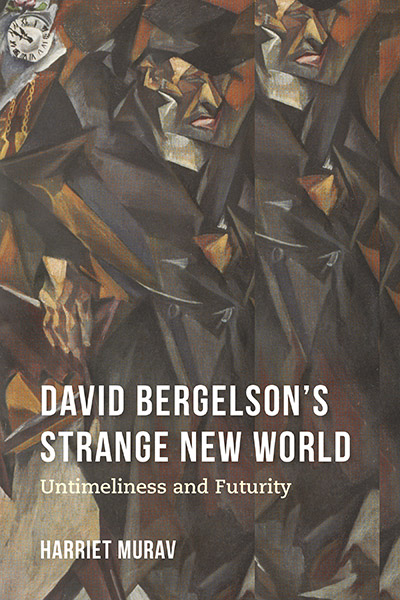[Live on Zoom] A Strange New World: Time in David Bergelson’s Literary Work

|
Conversation
Co-presented by the Center for Jewish History and YIVO Admission: Free Registration is required. |
Delays, inaction, repetition, the failure to take advantage of opportunities, missing the right moment—all sound bad. We are constantly told to move on. Yet sometimes, not doing, daydreaming, and standing still can be positive, even, creative. David Bergelson lived in a time of enormous upheaval and violent change. His characters, in contrast, do nothing. What can we learn from Bergelson in the Strange New World we live in?
Harriet Murav (University of Illinois) and Justin Cammy (Smith College) will discuss the texture of time, futurity, and activating the unrealized potentialities of the discarded past in Bergelson’s literary work, drawing on Murav’s recently published book, Strange New World: Untimeliness, Futurity. The conversation will begin with a general discussion about time and timing, using examples from The End of Everything, Bergelson’s 1913 masterpiece. We then turn to one of his most controversial novels, Judgment (1926) which, regardless of its sympathies for the Bolshevik cause, is not so interested in the new socialist future as much as the expansion of time and the exit from ongoing time found in holidays. The holiday, yontev, and the importance of holiday time (yontevdikayt) are key to Bergelson’s notion of creativity. To create literary work is to experience holiday time.
About the Speakers
Harriet Murav is Professor in the Department of Slavic Languages and Literatures and the Program in Comparative and World Literature at the University of Illinois at Urbana-Champaign. In addition to studies of Dostoevsky, and Russian law and literature, her books include Identity Theft: The Jew in Imperial Russia and the Case of Avraam Uri Kovner (Stanford University Press, 2003), and Music from a Speeding Train: Jewish Literature in Post-Revolution Russia (Stanford University Press, 2011). Her most recent book is David Bergelson’s Strange New World. Untimeliness and Futurity, published in 2019.
Justin Cammy is Associate Professor of Jewish Studies and of World Literatures at Smith College. He is a literary and cultural historian with research and teaching interests in Yiddish literature, Eastern European Jewish history, and Zionism and contemporary Israel. Justin Cammy's publications range from essays on Yiddish literary history to scholarly translations of Yiddish literature to introductions to new editions of works by Yiddish writers and memoirists. He is currently working on two projects: English translation and scholarly edition of the Abraham Sutzkever’ s memoir of the Vilna ghetto and testimony at Nuremberg, and a book,Young Vilna: Yiddish Culture of the Last Generation, to be published by Indiana University Press.
About the Book
David Bergelson’s Strange New World: Untimeliness, Futurity (Indiana University Press, 2019) focuses on the experience of anachronism and distorted temporality as an emotional, sensory, and existential condition in both Bergelson’s world and his literary work. The first part of the 20th century was marked by scientific, technological, and artistic innovation, social transformation, political upheaval, and violence, when time itself seemed to break apart. Freud and Henri Bergson, the two great modern theorists of time, memory, and consciousness, and contemporaries of the Yiddish author, provide the conceptual framework, and Russian and Yiddish modernism, the cultural context. Bergelson reframes the stagnation and obsolescence of the shtetl as the gateway for activating the unrealized potentialities of the discarded past. In our own time scholars and creative artists are returning to Henri Bergson for new insights about time, and the relation between the mind, the body, and the surrounding world. The book establishes his significance for Yiddish, thus introducing a network of convergences and parallels previously unexplored. A Strange New World adds to the growing discussion about the texture of time, its evocation in art, and its potentiality from the perspective of the early 20th century. The emphasis on futurity also helps balance the humanities today, dominated by a sense of futility. Many theorists see the past only as a source of the traumatic wound that we are compelled to repeat. In contrast, the Yiddish author Bergelson did not lose faith in life and the human capacity for creativity and the technology of death.




